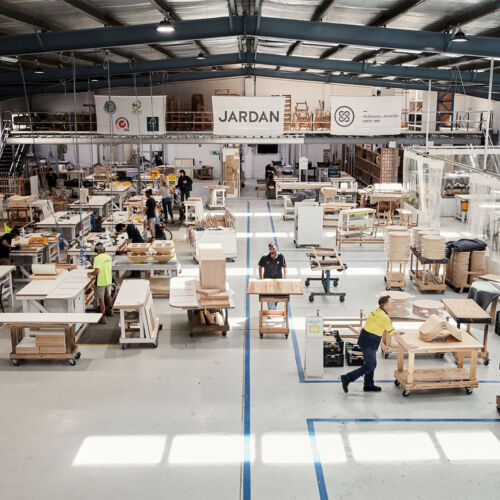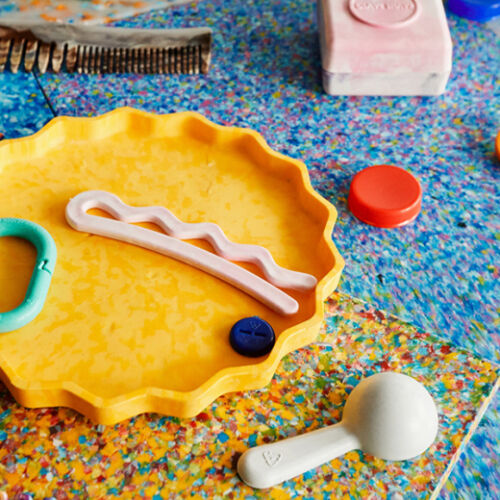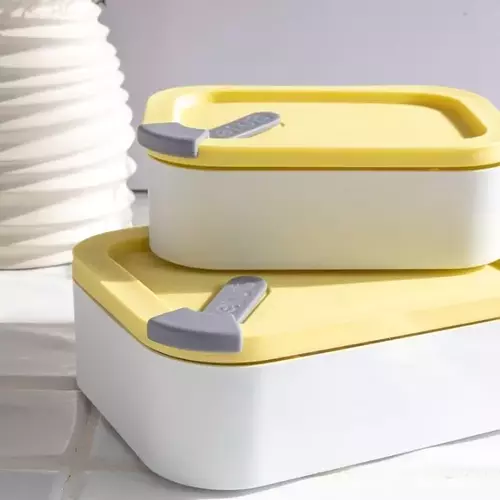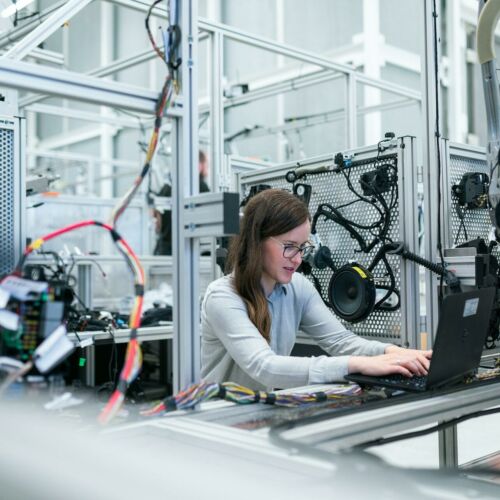Background and circular economy
In operation since 1987, Jardan is an Australian family-owned high-end furniture business. It is a design-led business that strives to make products sustainable throughout the entire lifecycle by partnering with like-minded suppliers and using quality. ethically-sourced, sustainable materials, continually evaluating and reducing waste, and making furniture that lasts.
From the circular economy value hill perspective, Jardan’s business model has a circular design. Their furniture facilitates optimal use via repair and re-upholstery services, while the product stewardship scheme ensures value retention of materials. They demonstrate a championing level of maturity in the circular economy (23/25). Achieving this maturity through through process monitoring in terms of possible improvements, raising supplier and customer environmental awareness and practices, and having a formalised environmental management system.
Drivers for circular economy adoption
The owners' personal values and passion for sustainability is the key push for adopting the circular economy model. These values have been embedded in the management team (and employees), all wanting to become industry leaders for sustainability. External drivers include market demand and ability to gain a competitive edge, various accreditation expectations (ISO14000, GECA), and support from the government and government grants.
Circular economy practices adopted
- Ethical and responsible sourcing
- Raw materials are certified to a recognised sustainability standard
- Over 75-percent of materials are sourced from Australian suppliers
- Uses water-based glues and lacquers, which are free from harmful and volatile organic compounds
- Product designed for longevity
- 25-percent use of renewable energy via solar panels
- 17-percent reduction of energy consumption (e.g., LED lighting)
- A carbon-neutral organisation
- Reduced waste by more than 65-percent
- Advanced technology to reduce material waste
- Repair and resell products returned under the product stewardship program
- Refurbishing in the re-upholstery service
- Remanufacture using returned products
- Repurpose material from returned products
- Foam waste that is deconstructed in-house is processed and re-used as the underlay material
Company changes with the adoption
Jardan has been certified as carbon neutral since 2014 and has been progressing to be more circular in its approach.
Barriers and challenges
Barriers and challenges include:
- Competing priorities of balancing sustainability while managing financial, environmental and social outcomes
- Higher product cost and less production efficiency due to extra processes
- Lack of suitable human resources (skill shortage)
- Lack of recycling options for some residual materials
- Lack of manufacturing in Australia creates both upstream and downstream problems
- Lack of visibility to confirm supplier compliance
- High transport costs to return products and associated carbon footprint
- Lack of consistent government standards geographically
Critical success factors for circular economy
Critical success factors include:
- Leaders' vision and commitment
- Environmental perspective integrated with entrepreneurial thinking
- Persistence in the circular journey as a long-term strategy
- Circularity built-in at all stages (design to recycling)
- Willingness to educate the workforce and openness to learn
- Collaborative knowledge sharing and of success stories
- Support and buy-in from customers and the downstream supply chain
- Working with suppliers to extend internal practices, and decisions to change suppliers if they do not comply
Benefits of adopting a circular economy
Jardan have grown the company, which in turn has meant economic benefits. They have been able to create a better culture and feel-good environment, and are recognised as an employer of choice. External benefits of adopting the circular economy model are brand value, as well as the ability to provide a better product to the customer.



